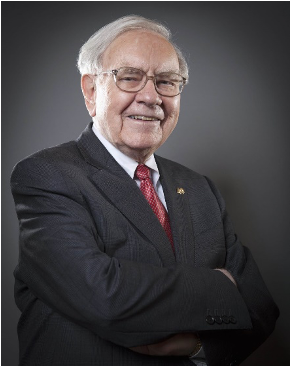In part two of this series, we discussed the Eisenhower Box, and how to prioritize what you spend your time on, including the need to list and schedule your activities. Now in the final installment of the series, I’ll discuss one exceptionally powerful word, that many people have some difficulty employing. That word? “No”

“The difference between successful people and really successful people is that really successful people say no to almost everything.” — Warren Buffett
It isn’t about being unhelpful, it’s about recognizing your limits.
According to billionaire investor Warren Buffett, time management is all about saying “no.” By turning down the requests of other people, Buffett has more time to focus on things that matter most in his life.
Sometimes, saying yes can boost your career – it can open doors and lead to opportunities, invites collaboration. Saying yes is empowering. It lets you stretch and challenge yourself. You can test your limits and try and even allow yourself permission to fail.
However, always saying yes… that can stress you out, burn you out, and worst of all rob you of productivity, time with your loved ones and if you aren’t careful, your health. Being too much of a “yes person” can leave you flat on your back and wondering why you’ve been so very busy but also so very unproductive.
Billionaire Warren Buffett, chairman and CEO of Berkshire Hathaway, posits a theory on the subject that’s worth exploring – in particular, the bit about “really successful people” saying no “to almost everything”.
Notice that Buffett said almost everything. He says we must choose, very deliberately, what we say yes to and what we say no to. It’s really all about simplifying, prioritizing, and most importantly, focusing our attention on what matters most.
Tech wizard Steve Jobs agreed. “People think focus means saying yes to the thing you’ve got to focus on. But that’s not what it means at all. It means saying no to the hundred other good ideas that there are. You have to pick carefully.”
If you want to grow your career, you need to learn to say no. Here’s how:
Be honest about what’s truly urgent and important. Be sincere and direct when you respond to a request with “no”. Don’t feel guilty. Don’t waste time trying to explain or justify your answer. A simple answer is best – if you aren’t able to invest the time – just say so Try saying something like “no, I’m sorry, but I don’t have the time to do that”.
Sometimes you may have a seemingly endless string of requests, and you might begin to believe that everything is both urgent and important (remember the Eisenhower Box from the last installment in this series?) Use the Eisenhower Box as a decision-making tool for requests for your help. In all cases, treat your time like the valuable and precious commodity it is.
Time is a limited and non-renewable resource. It’s hard to be productive and focused when you have many things vying for your attention. When you begin to get comfortable with saying no, you’ll earn the respect of others who will recognize that you have the integrity not to accept a request to help when you won’t be able to focus your best effort on the task, and that you won’t waste their time by attempting something that you know you don’t have the capacity for. You improve your ability to focus on the truly important things, and you’ll see improvements in your efficiency, and the quality of your work. Others will see it too!
The High Impact Manager® training program includes an entire module on the importance of Productive Time Management – and the Goal of Transformative Leadership Development™ is to share the lessons learned by some of the top organizations in the world to help your organization grow and reach its full potential. Consider the possibilities if all of your team understood and implemented truly effective time management, and take a look at what else the High Impact Manager® curriculum could do for you and your team. Contact TLD Training today!
